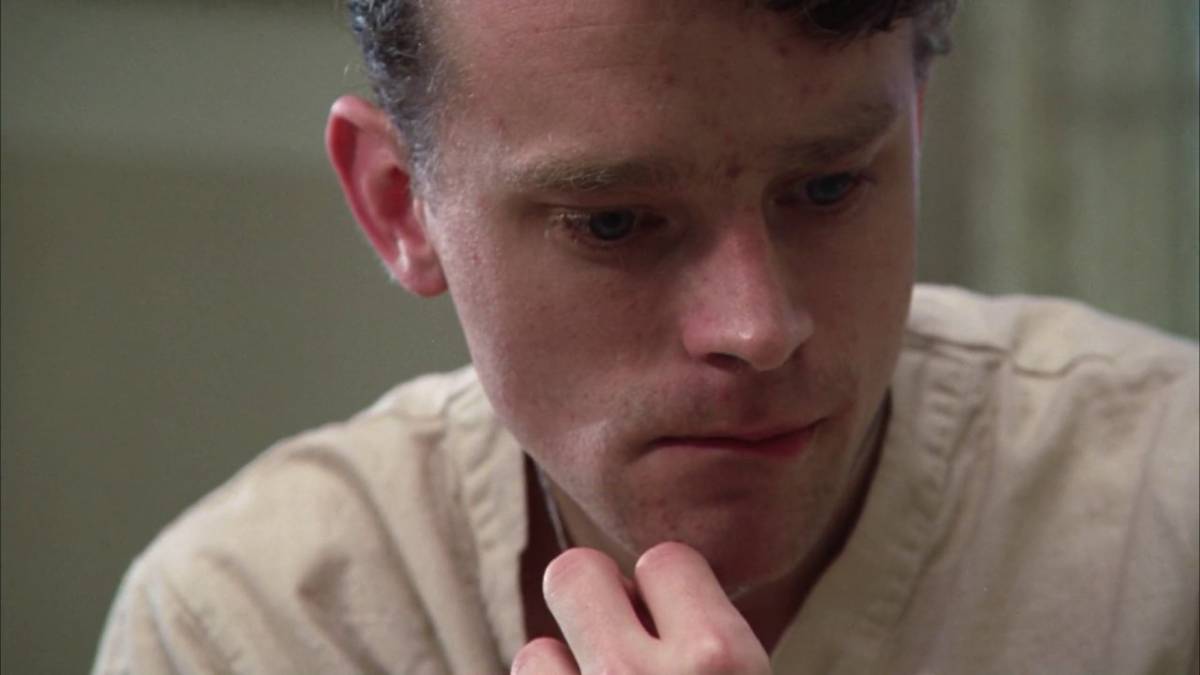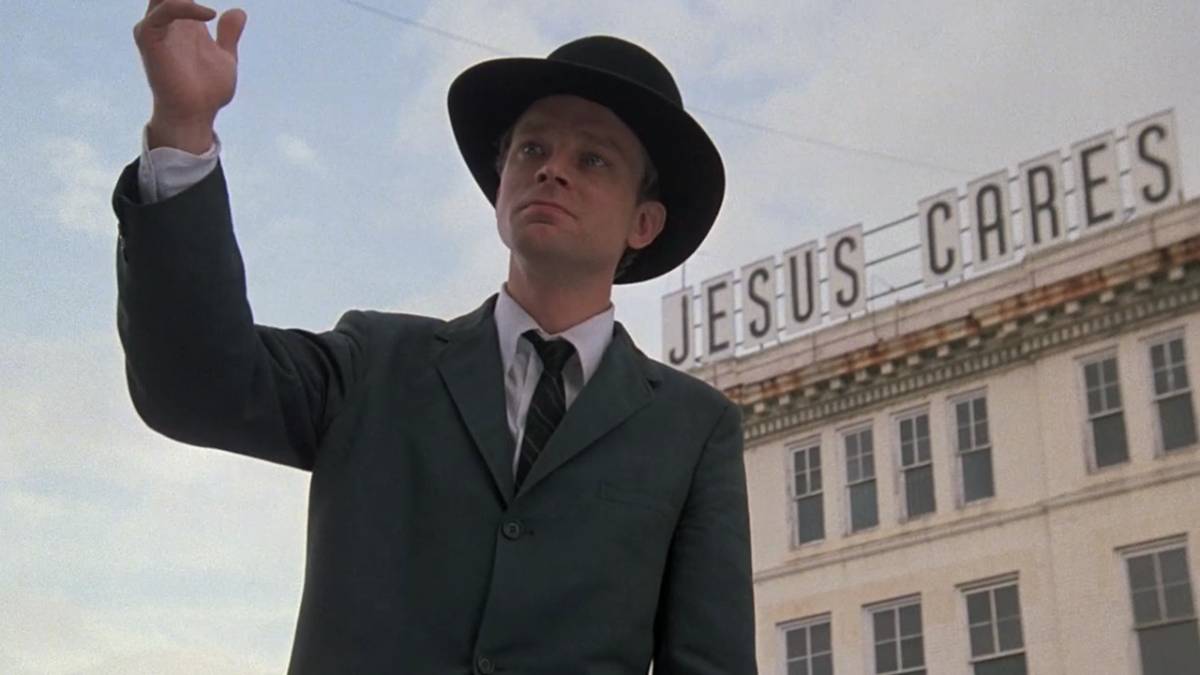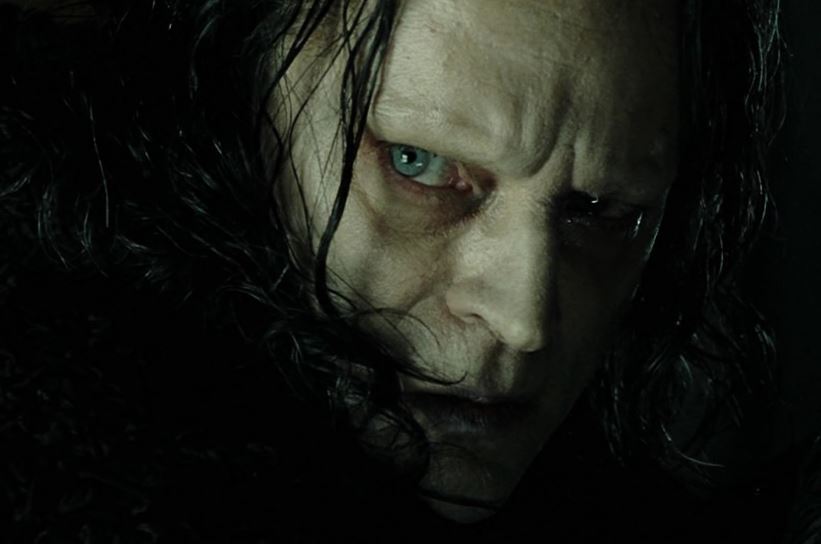Make the Case lists choices chronologically, rather than in any order of quality. Picks reflect film acting roles only. If the actor in question also directed the movie, that’s purely a coincidence, and it plays no part in the film’s inclusion.
Two personal anecdotes involving Brad Dourif, one of the most distinctive, entertaining, and underappreciated character actors of the past forty years, and then we’ll get to the movies:
1. It is 2006. I’m seeing the lifeless (pun intended?), pointless 2006 remake of Kairo, which in the U.S. is known as Pulse. I’m sitting in the theater. I’m bored. I haven’t been this bored while watching a movie in quite some time. Wes Craven co-wrote the script? What? Good lord, this movie is trash on a mountain of shit. Then, as the film lumbers its sorry, useless ass to its climax, out of nowhere, and like some mythical hero arriving at the zero hour, Brad Dourif appears. In what is essentially a cameo, Dourif appears as a crazed patron at a diner, after the plague and hordes of electronics-based undead begin to enthusiastically depopulate the planet. The film literally and thankfully comes to a complete stop for this cameo. It isn’t even really exposition, since we already understand what’s going on. Dourif’s character is bug-eyed glory, as he rants about the impending apocalypse. It’s not a great role, but it’s the only time in the film in which everyone in the audience seemed to perk up. His time on screen is brief, intense, and a moment of good acting, in a movie that’s completely devoid of that necessity.
When the movie shifts to another scene, everyone slumped back in their seats. You could tell everyone in the theater just wanted to get through the film. Brad Dourif was the only thing in that movie that anyone really responded to. His career is filled with examples of uninspired scripts and films being lucky enough to have him. Lucky, because no matter what the script calls for, Dourif will rise to the occasion. He is a legend at raving madmen, but it’s the intensity of his performances that is really worth paying attention to. Better directors and films understand that intensity, and ask from him something that’s more than just a man screaming. Pulse didn’t, and yet Dourif stands as the only thing that seemed to understand the kind of movie being made. For whatever reason, I’ve never forgotten that. I was a fan of his before, but Pulse somehow cemented that.
2. It is 2007. My cardboard copy of One Flew Over the Cuckoo’s Nest is covered in NyQuil, because a bottle exploded in my bag. I’m at Monster Mania in New Jersey. The plan was to have Brad sign the DVD, but that obviously wasn’t going to happen. I met him anyway, and we got a picture. He was as nice as I would have suspected. Unfortunately, in what was pretty rare for me, I was nervous. So nervous, I asked him who beat him for the Oscar he should have won for Cuckoo’s Nest, playing Billy Bibbit (his second film role ever). When he replied that it had been George Burns (for Sunshine Boys), I said something along the lines of “Aw, man, no wonder you didn’t win. No one ever beats the old guy.” He gave me a slightly annoyed look that managed to be absolutely terrifying. Because it’s Brad Dourif. Still very nice. I also asked him about whether he got to meet James Cagney during the making of Ragtime. I honestly can’t remember what he said.
1. One Flew over the Cuckoo’s Nest (1975)

After quitting college to study acting, Brad Dourif worked heavily in theater, appearing in Off-Broadway productions and others. One of those plays was seen by Milos Forman, who cast Dourif in the crucial role of Billy Bibbit. Up to that point, Dourif’s film experience consisted of a short film, and working as an extra in the Burt Reynolds movie, W.W and the Dixie Dancekings, which was eventually cut. In other words, Dourif had virtually no real film experience to speak of. That might be part of the strength of his performance as Billy. Beyond the fact that he clearly did his homework for the role, playing Billy with painstaking attention to detail and sensitivity, there is a natural vulnerability to the way Dourif realizes a character who is vulnerable in his own right.
Dourif’s portrayal is one of the great driving forces of this film, supported by a seemingly endless cast of equally impressive performances. All of this is supported by Forman’s unique ability to present great bursts of energy in deeply oppressive circumstances. The oppression tends to win out in the end, if only in terms of outliving the hero of the story. Billy Bibbit isn’t the hero of One Flew Over the Cuckoo’s Nest, but we get behind him as though he is. Dourif’s lack of experience as a film actor is not visible to us, as we meet Billy with the other inmates. The youngest patient on the ward, Billy has a terrible stammer, a deep fear of his mother, and the desperation to be taken seriously. Beyond the massive, mute Chief (Will Sampson), Billy is perhaps the most sympathetic character in the film. He is constantly afflicted by anxiety and fear so substantial, he struggles to speak. He is courageous simply by existing, and we cheer when his familial relationship with Nicholson’s McMurphy results in glimpses of the person Billy deserved to be. Dourif reveals these little victories with nuance that helps create one of the film’s most intriguing, beloved characters. When his courage is extinguished with unfathomable, quiet cruelty by Nurse Ratched, McMurphy’s response is our response. Nominated for an Oscar, Dourif lost to George Burns for The Sunshine Boys. Dourif should have won.
2. Wise Blood (1979)

A rare starring role for Dourif, Wise Blood is yet another masterpiece from John Houston. Wise Blood may also be one of the strangest films Houston ever directed. Hazel Motes is a grim, unhappy veteran of a war that is never made specific. He walks, struggles, and breathes the essence of bile towards anything that offends him. It’s a long list, and every offensive example is filtered through a church of his own spiritually poisoned design, known as The Church of Truth Without Christ. Wise Blood is a unique character study, and Dourif plays the inner and outward torment of Motes with a low-key, expressive fury. The movie gets really good when that fury swallows Motes’ brief, possibly illusory moments of possible happiness. While it’s true that watching Dourif play raving lunatics is a lot of fun, Wise Blood is a reminder that he doesn’t have to scream to be unforgettable as an actor. The intensity of Hazel Motes is on par with anything else he has done.
3. Child’s Play (1988)
https://www.youtube.com/watch?v=81vRwgKwX9E
In the same year Dourif starred in Child’s Play as Charles Lee Ray, who becomes Chucky after tossing the soul from his dying body into the body of a child-size doll, Dourif also appeared in Mississippi Burning. Two very different movies with two very different approaches to playing horrible human beings. At least with Chucky, the appeal is a line between scary (well, the first one) and entertaining. Mississippi Burning depicts Dourif playing a Klu Klux Klan member and sheriff’s deputy in a small southern town, during the fever pitch of the 1960s Civil Rights Movement. I mention Mississippi Burning so often because I feel like Dourif’s versatility is worth emphasizing. These are two very different films. It would be impossible to simply exist as the same character in both.
Dourif moves from playing a real-life monster whose modern-day spiritual children are in the news these days, to playing an enraged, almost cartoonish serial killer; in the body of something that ruined the My Buddy dolls for an awful lot of 80s horror kids. The range is underrated, and Child’s Play remains a modern horror mini-classic. Dourif’s underrated charisma translates well to voice work. His enthusiasm in every Chucky performance is almost enough to carry the mixed-bag sequels all on its own. You could certainly argue that for Child’s Play III. Bride of Chucky onwards has had better luck at defining the humor of the franchise. However, without Dourif, and no disrespect to the amazing Jennifer Tilly, it’s difficult to imagine that humor would last very long.
4. The Lord of the Rings: The Two Towers (2002)

From 1988 to 2002, Dourif’s career took him to some strange places. Dourif established himself as a bug-eyed madman with a distinctive voice, but occasionally still got the chance to do other things with his range of talents. Either way, he has rarely been boring. In movies like Spontaneous Combustion, The Exorcist III, Murder in the First, Horseplayer, and Best Men, he is usually one of the best things in the film. The Exorcist III in particular offers one of the most arresting physical presentations of evil ever put to film. An underrated film on numerous levels, it is Dourif’s best work in the horror genre.
Performances like those, along with numerous TV appearances on shows like Murder She Wrote, The X-Files, Millennium, Ponderosa, and later on Deadwood, are worth watching, if you can’t stand another run of The Two Towers. I can’t say I blame you, as much as I still love those movies. Dourif as Gríma Wormtongue is one of the reasons why I still love those movies. Again, although it’s true that Dourif is generally playing bad guys, he can approach malevolence from a number of different angles. No one is going to confuse Wormtongue with Chucky, or with whoever the hell Dourif played in Alien Resurrection. In The Two Towers, I’ll make the argument that he was the best overtly sinister villain in the story. At least, as far as the movies are concerned. Dourif isn’t just a bad guy. He is the most repulsive of Sauron’s minions. He is the most feverishly dedicated. His disgusting devotion to the monsters of Middle-earth is an important contrast to all of the things Gandalf, Frodo, Aragorn, and all the rest are fighting for.
5. The Wild Blue Yonder (2005)
https://www.youtube.com/watch?v=muUHzNatW-Q
I actually considered his performance of Sheriff Lee Brackett in the Rob Zombie-riffic remake of Halloween. It is on a very, very small list of things to do with that movie that are not a colossal, shitty waste of time.
Instead, I decided on Dourif’s performance as The Alien in Werner Herzog’s The Wild Blue Yonder. The movie itself, in which an extraterrestrial recounts his experiences on earth, as well as the tragic fate of the planet and its people, is good. It’s not great, but it’s a unique, often fascinating blend of documentary footage with Dourif’s lengthy monologues as his character. Almost the entirety of the character, the only real character in the movie, is created through the quiet, simple story told by Dourif’s alien. Dourif gives the story and character a sense of ancient wonder, as well as something akin to a constant measure of disbelief that haunts The Alien to the present day. Dourif creates an atmosphere of loneliness that is even stronger than the desolate backdrop in which he stands, speaks, and looks around; as though someone may be coming for him after all.
Some of the coverage you find on Cultured Vultures contains affiliate links, which provide us with small commissions based on purchases made from visiting our site. We cover gaming news, movie reviews, wrestling and much more.


